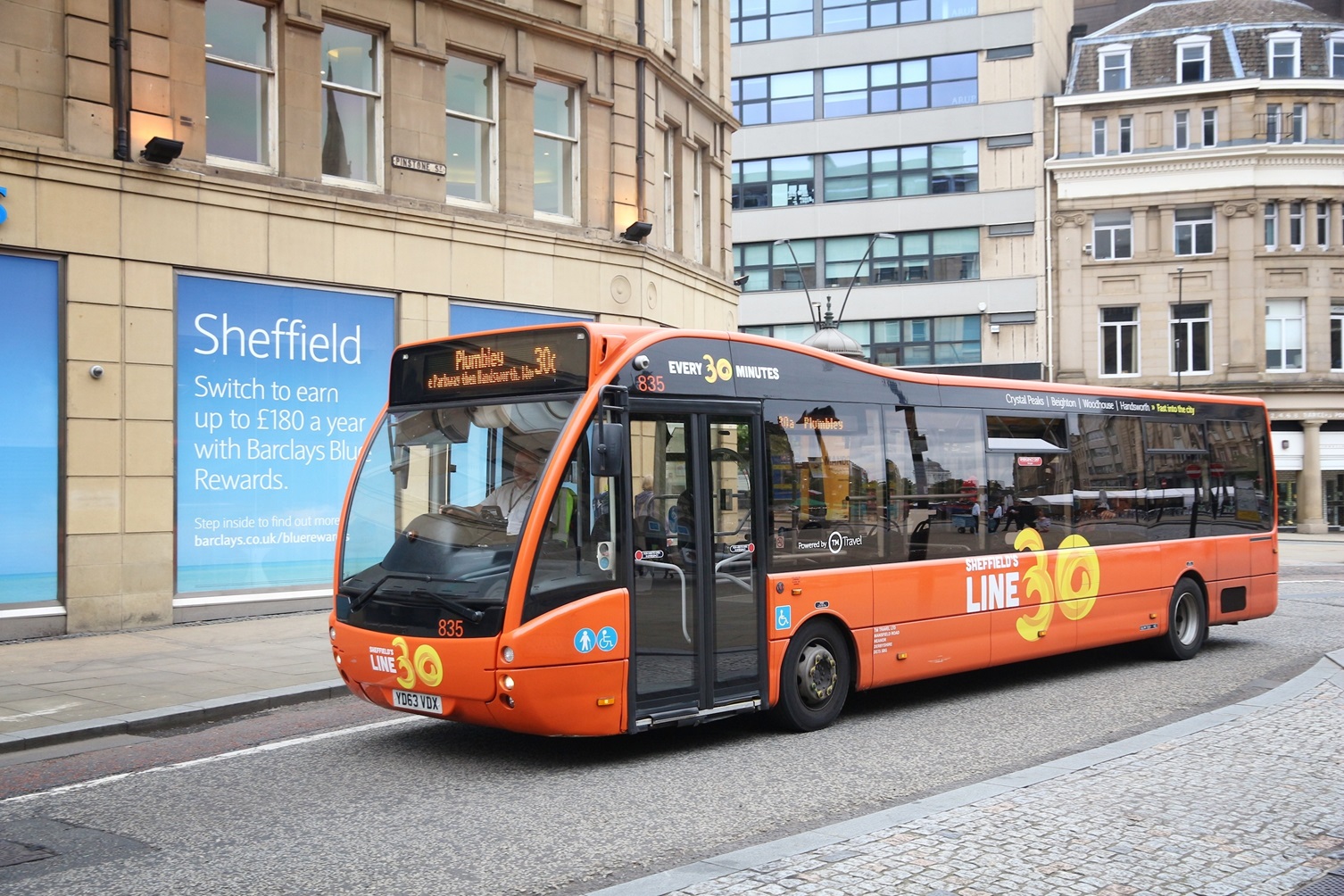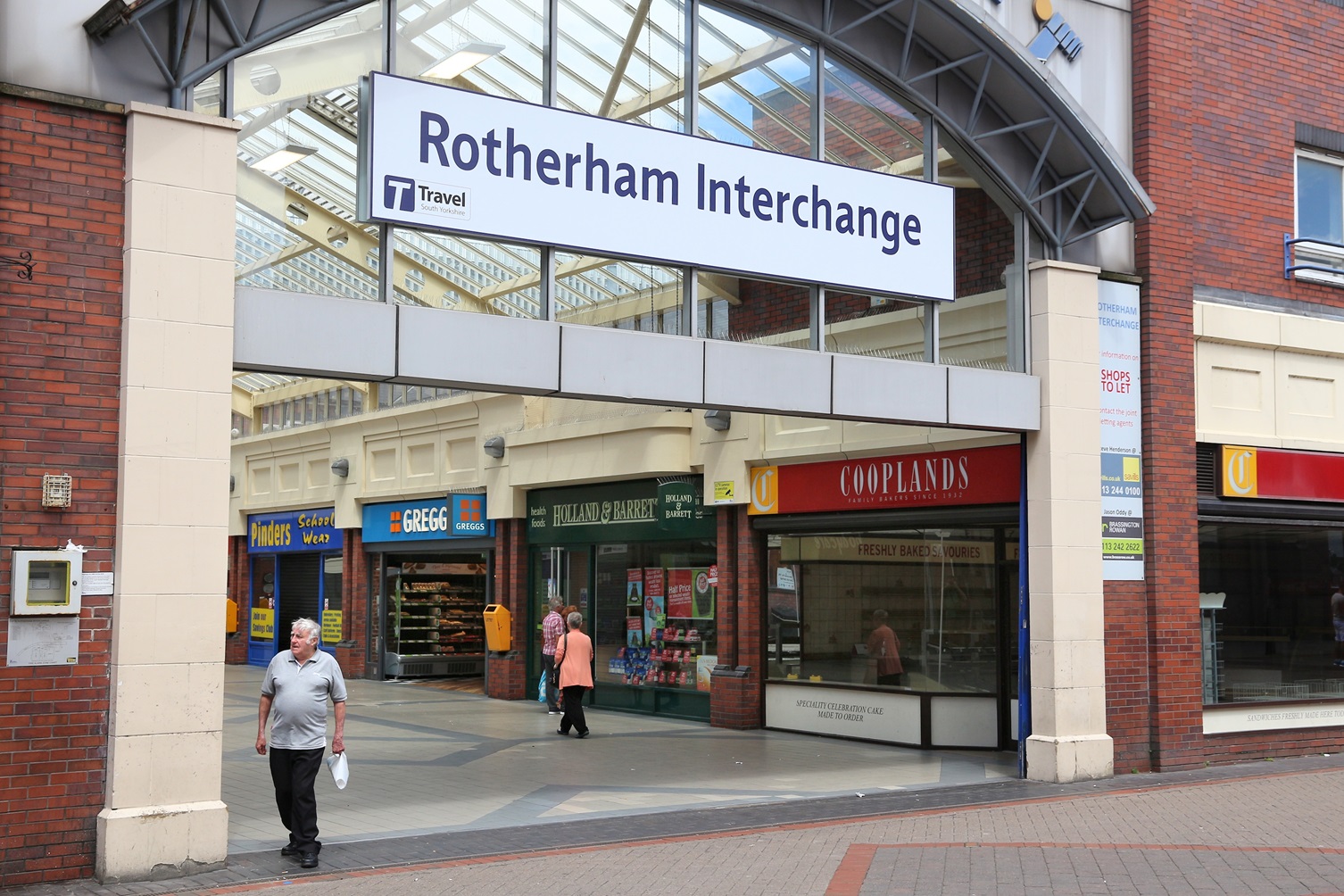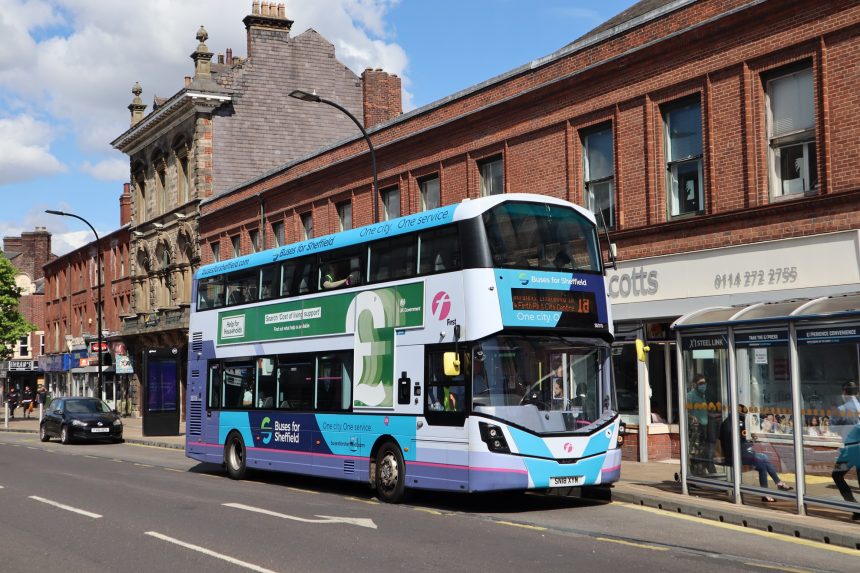Details of how bus franchising in South Yorkshire would be structured have been released by the South Yorkshire Mayoral Combined Authority (SYMCA) via the opening of a consultation on those proposals and publication of associated documents.
Franchising is the favoured path for bus reform in South Yorkshire. The now-revealed Bus Franchising Assessment notes that SYMCA’s preferred approach to its delivery better meets the Combined Authority’s objectives when compared to alternatives and provides confidence in the delivery of required outcomes.
Franchising would be rolled out across three tranches under the plans. Those will be built around large ‘anchor’ contracts for routes currently operated from seven major depots in South Yorkshire and be complemented by small contracts.
Vehicles and ‘anchor’ depots would be owned by SYMCA and leased to successful bidders. That will deliver what it says is “robust competition” for contracts with barriers to entry that are the lowest of any of the four franchising options previously considered.
The assessment shows that the first franchising contracts would be entered into on 1 April 2027. A six-month mobilisation period would see publicly controlled buses on the road by 1 October 2027. Mobilisation of the third and final tranche would complete by 1 July 2029.
While ‘anchor’ contracts are set to be based on what currently operates from large depots, smaller packages will not be aligned with any of those operating centres “and would potentially be attractive to small and medium operators,” the assessment notes.

SYMCA would not provide depots for small contracts. It says that those awards would be made up of services that are “geographically proximate” to ‘anchor’ operating centres.
Under the proposed rollout strategy, the ‘anchor’ element of the first tranche of franchising would be formed of routes currently at First South Yorkshire depots in Doncaster and Sheffield, with an indicative PVR of 375-425.
The second tranche ‘anchor’ stage would capture routes presently at Stagecoach Yorkshire depots in Barnsley and Rotherham with an indicative 150-200 PVR. The final tranche would build its ‘anchor’ contract(s) on routes currently at two Stagecoach depots in Sheffield and the TM Travel operating centre in the same city, with an indicative PVR of 150-225.
How many individual ‘anchor’ contracts will be part of each tranche is not revealed, but small contracts will number between zero and five in each round. PVR for the latter will be up to 40, although most will be “significantly smaller.”
Assumed contract length under franchising is five years, with a two-year possible extension “on the basis of either strong performance or MCA discretion.”
SYMCA will need to buy most existing ‘anchor’ depots, although it already owns the First South Yorkshire operating centre in Doncaster. The Combined Authority may pursue compulsory purchase or the development of alternatives if agreement cannot be reached with current owners.
While SME operators have seen little success in bus franchising in Greater Manchester, SYMCA may engage specifically with SMEs via sessions focused on small contract awards, it says.
Notably, SME operators could be encouraged to form joint bids. A door is open to a more relaxed pre-qualification regime for small contracts, and complexity of contracts could also be commensurate with the scale of them, the consultation notes.

In a summary of the financial position for the favoured franchising option, SYMCA outlines that from the start of mobilisation in 2027-28 to 2041-42, it will deliver “a significant annual financial surplus.”
That is based primarily on City Region Sustainable Transport Settlement money funding an anticipated £350 million initial capital expenditure on fleets and depots from 2027-28 to 2031-32. After 2042-43, where a borrowing-funded second fleet renewal cycle occurs, a deficit will begin to emerge.
However, SYMCA says that franchising remains affordable because surpluses returned between 2027-28 and 2042-43 “can be ringfenced, placed on deposit, and receive interest.” They would then fund the annual deficit from 2043-44 to the end of the 30-year appraisal period.
The cumulative surplus is projected to peak at £250 million from 2041-42, although SYMCA acknowledges several key financial risks that it would carry with franchising.
Under its proposed approach, SYMCA would expect to adopt a residual value mechanism to acquire or build into franchises vehicles that are no more than 15 years old. As the average age of the region’s bus fleet is 11.5 years, it thus anticipates a need for significant renewal regardless of the reform method adopted.
The consultation runs until 15 January 2025. Mayor Oliver Coppard is to decide during the spring of next year whether franchising progresses. If it is green-lit as appears inevitable, a franchising scheme will be made on 1 May 2025.



























